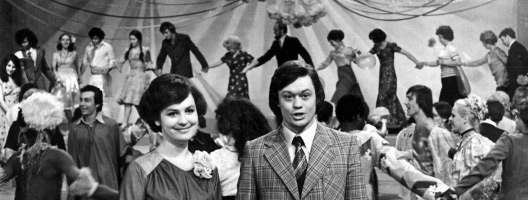TV holidays

Most of us, if we are lucky, spend our lives in a state of the ordinary. This is a world of work and study, meetings with friends and family, and, yes, television viewing. But our lives are also punctuated by special occasions: babies and birthdays, weddings and anniversaries. Societies function in a similar manner: everyday time is punctuated by extraordinary, festive occasions, which tend to reflect shared values or commemorate past events. Some special occasions, like Christmas or the New Year, rely on religious and calendrical time, but others are focused on national days, commemorating historical events, or historical anniversaries. Socialist societies were built on the idea that after a period of construction – nobody knew how long that would be – a Communist society would be constructed. So these societies already came with a ‘built in’ idea that the ordinary that existed today would be very different to the extraordinary time that would come tomorrow. National days and other festivities were designed to bridge that gap: they showed a society in a process of moving towards the future.
Television played an important part in creating such a vision. Not only did it broadcast parades and other commemorative events; it also created particular ‘television holidays’, including festive versions of regular programmes and attention-grabbing specials. The involvement of television in May Day festivities offers a case in point. May Day parades were a ubiquitous feature of life in socialist countries. They were organised by workplaces, schools, and other organisations, and in many countries it was a virtual requirement to take part in the parades. Socialist television broadcast live footage of these occasions, sometimes interspersing domestic footage with highlights of the parade in other socialist countries. For the rest of the day, cartoons and programmes for children, as well as other entertainment shows would be shown. In other words, the festivities were continued on the TV screen.
Viewers’ preferences seemed to lie not with ideologically-saturated festivals such as revolutionary anniversaries, national days, and May Day – these were festivals which celebrated national unity, socialist brotherhood, and national heroism – but with holidays that were less connected to revolutionary transformation, such as the New Year, or even (in some countries) Christmas. Indeed, the most famous programmes of the TV year, from Little Blue Flame (Goluboi ogonek, 1960-1985) in the USSR to Between Breakfast and Roast Goose (Zwischen Frühstück und Gansebraten, 1957-1991) in the GDR were set during holidays that had little if any explicit connection with communist ideals.